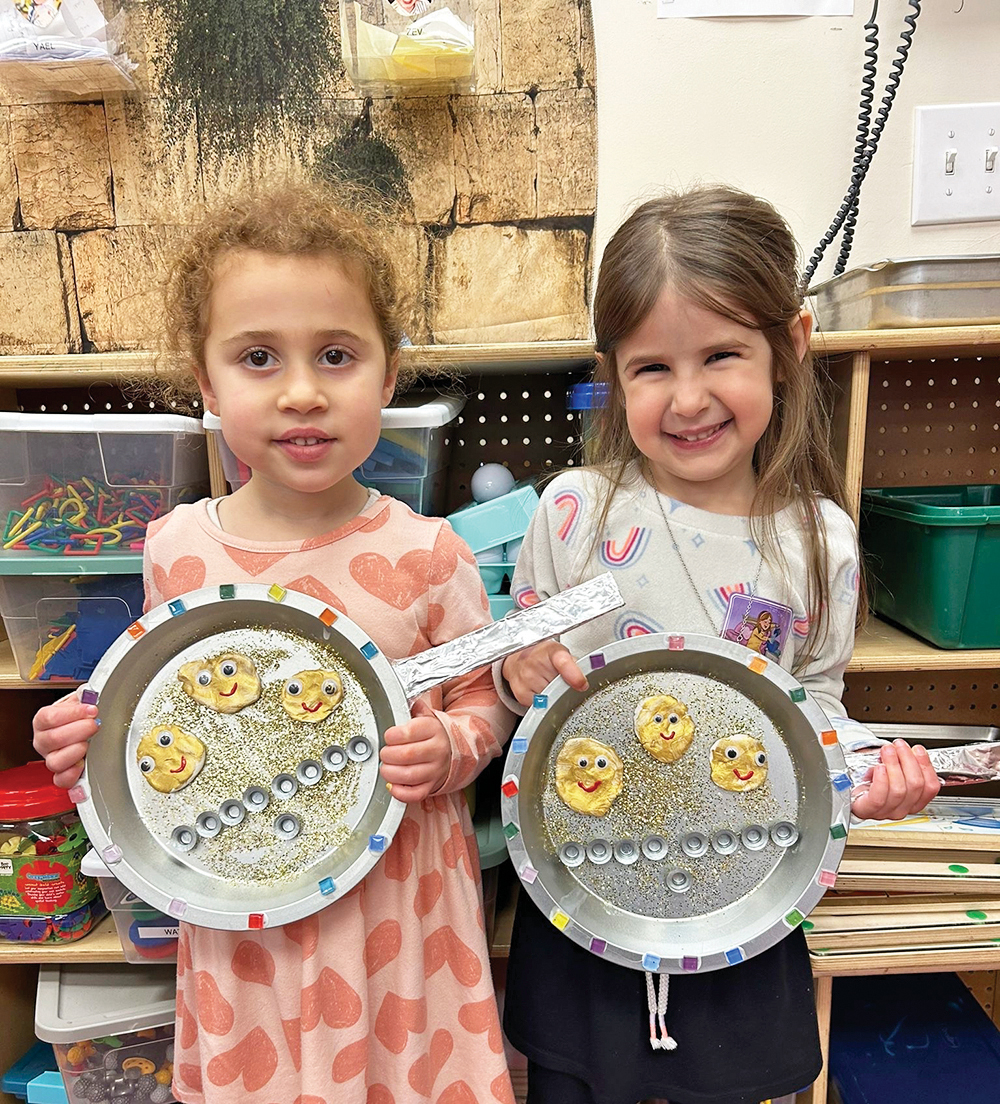I have a friend who is a talented and experienced rebbi. A few years ago, several people encouraged him to start a new yeshiva high school. It’s a daunting task—securing rebbeim, teachers, a location, funding, and the most challenging of all: students! A businessman who believed in my friend offered him his office for meetings and interviews. Another person, a local rebbi himself, called my friend to say, “We need your new yeshiva. I’ll help you get students. I’ll talk to parents and encourage them to send their children.” My friend told me he felt empowered. He still had to do the heavy lifting, but those supportive offers from the businessman and local rebbi made all the difference.
One of the central figures of Sefer Shemos and the entire Chumash is Moshe. Moshe led klal Yisrael, and at Hashem’s instruction, took us out of Mitzrayim, split the sea, taught us the Torah, built the Mishkan (Tabernacle) and led the nation into Eretz Yisrael. Funny though…the Torah tells us precious little about Moshe’s development. How did he become the greatest of men?
The Alter from Kelm singles out one pasuk as the secret of Moshe becoming a gadol, the greatest of men. “…Vayigdal Moshe vayeitzei el echav….” Moshe grew up and went out to his brethren (his fellow Jews) and saw their tremendous burden and suffering. Rashi notes the word vayigdal, simply translated, is Moshe grew up, but here it is referring to his becoming a great leader. How so? The Ramban emphasizes that Moshe left the palace of Pharoh, where he lived as a prince, to see and feel the plight of the Jewish nation who were being overworked as slaves. Moshe “saw their tremendous burdens.” Rashi explains that Moshe didn’t just see them, but also took their plight to heart. The Midrash describes how Moshe took off his royal garments and began to help individual Jews carry their loads.
That’s a gadol. The qualities of taking notice and attempting to help carry someone’s burden indicates the greatness of Moshe. The quality of nosei b’ol im chaveiro—helping carry another’s burden—is listed in Pirkei Avos as one of the 48 qualities needed to acquire Torah. Rav Wolbe notes that it is insufficient to just take notice and feel bad that someone is unduly burdened; taking an action to help alleviate the burden is what is required, as was done by Moshe.
How is nosei b’ol different from classic chesed—a regular act of kindness? Chesed is an individual act of kindness that helps someone in some form. Nosei b’ol means helping someone in order to alleviate their burden. People have many responsibilities in life—family, work and so on. Some tasks are normally performed only by oneself, not by someone else. Those tasks can weigh heavily on a person and can feel overwhelming at times. When someone else notices and shows they care by helping in whatever capacity they can, this lightens the load and makes the entire situation more manageable. Moshe could not help every Jew, but everyone knew he cared and wanted to help them. That made their collective load feel lighter and more manageable.
We can emulate this quality of Moshe, especially with regard to our spouses. This is a critical aspect of marriage; a wife needs to feel that her husband is there for her, and vice versa. With regard to friends and others, the quality of nosei b’ol requires us to really take note…and take action to help when we have the opportunity to do so. Whatever you do for other individuals will lighten their burden. They will know from your actions that they aren’t alone with their burdens. Perhaps making a meal or inviting them for a meal or perhaps paying for a cleaning lady when they can’t afford it can help a mother who feels overwhelmed. Helping someone with a business lead or just offering yourself as a resource can help alleviate someone’s stress.
Our yeshiva has just launched its dinner campaign—the major annual event that helps bring in 50% of our annual budget. Our building campaign continues also. It can be a heavy load at times—the pressure to both raise the money needed to keep our Torah learning thriving and to accomplish a much-needed expansion of our building. However, I’m so fortunate that many people welcome our Torah message and want to help our unique yeshiva. Not every person may have the resources to donate large sums needed, but that’s okay. Every gift of every size is sending me the message, “I believe in you and your yeshiva.” That is priceless. That is nosei b’ol. Thank you for that. In a truly genuine way, by your efforts to give, we are strengthening each other!
Rabbi Baruch Bodenheim is the associate rosh yeshiva of Passaic Torah Institute (PTI)/Yeshiva Ner Boruch, where he leads a multi-level Gemara-learning program. PTI has attracted adult Jews of all ages from all over northern New Jersey for its learning programs. Fees are not charged but any contributions are always welcome. Beyond PTI, Rabbi Bodenheim conducts a weekly beis midrash program with chavrusa learning in Livingston plus a monthly group in West Caldwell. Rabbi Bodenheim can be reached at [email protected]. For more info about PTI and its Torah classes, visit www.pti.shulcloud.com.













